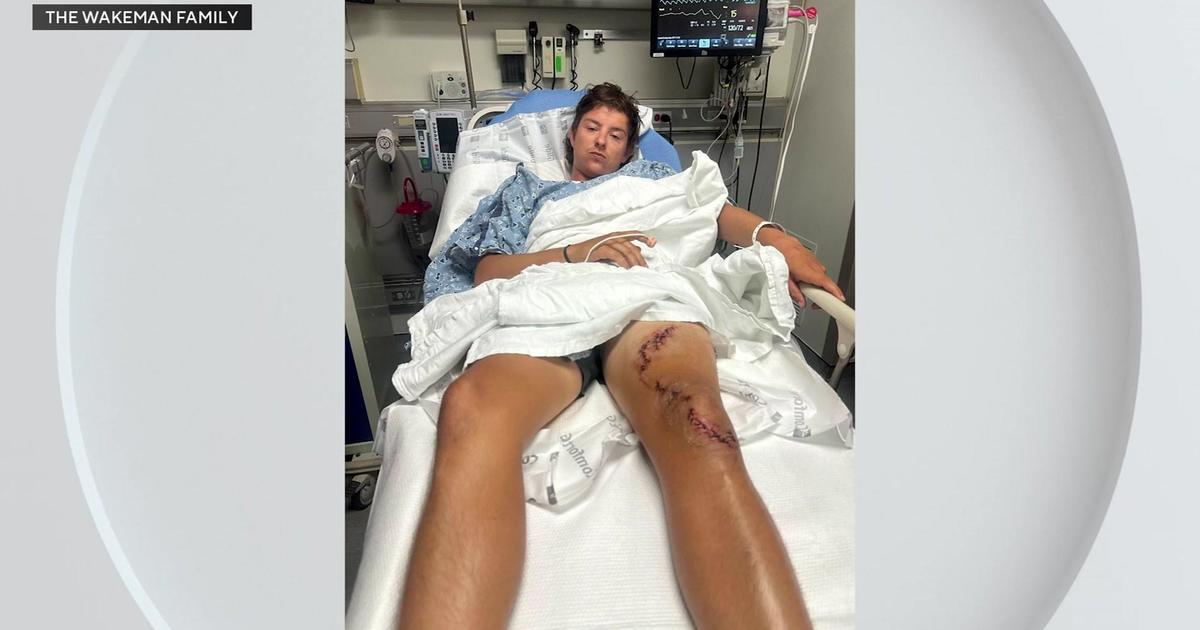Coronavirus Explainer: Symptoms, Risk & Avoidance
MIAMI (CBSMiami) – As the coronavirus continues changing so much, we wanted to pause tonight, take a little breath and get a refresher on some basics. Just what is the coronavirus? How does it affect people? Who is most at risk, and why?
It is known as COVID-19. C-O for corona, V-I for virus, D for disease and 19 for when it was discovered.
Coronaviruses is actually a general name. They are the cause of the common cold, the flu and deadlier outbreaks like SARS or MERS.
Like those viruses, COVID-19 is transmitted most commonly through respiratory droplets produced when an infected person coughs or sneezes on you.
According to the Centers for Disease Control the virus can also live on surfaces for extended periods of time.
However, the CDC has yet to have a case that came from someone touching something. All confirmed cases so far have been linked to direct contact with another person.
Symptoms for COVID-19 typically appear two days to two weeks after exposure, which is why you hear people quarantining themselves for 14 days if they have been exposed to someone with the virus.
Symptoms include:
- Fever
- Cough
- Shortness Of Breath
If you test positive for coronavirus, you may be admitted to a hospital or be advised to self-quarantine yourself at home. It depends on the severity of your symptoms.
A majority of the cases are little more than a cough as long as it stays in the nose and throat. It is dangerous though if it reaches your lungs.
The virus began in China and the World Health Organization has done extensive study on the outbreak.
Of those infected in China, WHO found:
- 80% had mild to moderate symptoms, including pneumonia
- 8% had severe symptoms with respiratory issues.
- 1% has critical outcomes with respiratory failure, septic shock and/or multiple organ dysfunction and failure
The data shows children are remarkably resilient to the virus and typically experience mild symptoms. For seniors it's the opposite – it can be deadly.
Also, those with immune system issues or chronic medical conditions, such as heart disease, diabetes, or lung disease, are at great risk as well.
So how do you avoid coronavirus?
- Wash your hands often with soap and water
- Wash for at least 20 seconds
- Wash before eating, after blowing your nose, coughing or sneezing
- Be sure to wash your thumbs, wrists and between your fingers, the most commonly missed places.
- If soap and water are not readily available, use an alcohol-based hand sanitizer with at least 60% alcohol
- Avoid touching your eyes, nose, mouth and face
- Avoid close contact with people who are sick or exhibit symptoms
- Stay home when you are sick
As for a facemask, it depends. The CDC said only people with coronavirus symptoms should use protective masks as a measure to help contain the disease.
They are also recommended for health workers and others caring for infected patients.
However, the CDC does not recommend healthy people to wear facemasks.
RELATED:
Track The Spread Of The Coronavirus In Real Time
Preventing Coronavirus: Best Miami Songs To Sing For 20 Seconds While Washing Your Hands
Coronavirus Concerns And Voting: Miami-Dade, Broward Election Officials Prepared To Protect Voters, Workers
Disinfectants You Can Use Against Coronavirus
Think You Have Coronavirus? Call Florida's COVID-19 Hotline Before Going To Doctor Or ER



